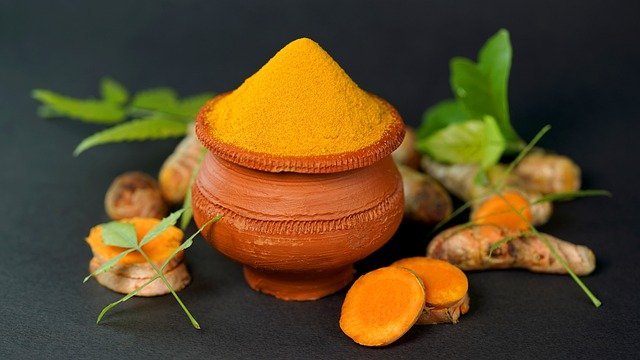Inside BENEO’s new pulse plant: pioneering sustainable protein from faba beans
The tide has turned in favor of India, which has a rich tradition of herbal medicines and supplements
As the world continues to grapple with the novel coronavirus outbreak, prevention, rather cure, seems to have become the new mantra. While it may not be an elixir, there has been growing interest among consumers for nutraceuticals as they look for healthy alternatives to boost immunity and build resilience against diseases. Especially in the wake of the recent pandemic, the paranoia about the disease, which first led to an unusual surge in the demand for sanitizers, has now turned towards healthy eating and preventive medication.
A healthy immune system is instrumental in reducing one’s vulnerability to infection and increases the chances of recovery. As such, consumers are increasingly turning to foods rich in Vitamin C and Vitamin D, which play a key role in boosting immunity. There have also been reports of Covid-19 patients being administered Vitamin C through intravenous therapy. Functional beverages are also being substituted for aerated high sugar drinks as a precautionary measure. This demand is driving the immune-boosting food products market, which is expected to grow from $830 bn in 2019 to over $1 tn by 2023 at a compound annual growth rate (CAGR) of 6.2 per cent according to Business Research Company’s Immunity Boosting Food Products Market Global Report 2020-30: Covid 19 Implications and Growth.
Presently, the USA along with Japan and Europe accounts for nearly 90per cent of the total global nutraceuticals market. However, these markets are now nearing maturity, shifting the focus towards developing economies, especially in the Asia Pacific region and particularly India. The Indian nutraceuticals market was valued at an estimated $5 bn in 2019 and is expected to touch $11 bn by 2023, at a CAGR of 21 per cent. Presently, India holds around 2 per cent of the global market share, which is likely to increase to around 3.5 per cent by 2023.
From Traditional to Mainstream: India catering well to the demand
As the global consumer trend shifts away from curative medicine towards preventive measures, the tide has turned in favor of India, which has a rich tradition of herbal medicines and supplements that find roots in Ayurveda, Charak Samhita, Vedas and Puranas. India’s exports of pharmaceuticals products have been growing over the last few years, which includes pro-vitamins and vitamins, natural as well as reproduced by synthesis (including natural concentrates) and their derivatives. From 2018-19, after the outbreak of coronavirus, by the end of 2019, there has been a significant surge in the exports of nutraceutical supplements from India, from 4.8per cent in 2018 to 7.8per cent by the end of 2019.
Developed nations like the US are importing from India large quantities of biological or fermentation-based bio-pharma alternates to synthetic immune-boosters like yeast, beta gluca and probiotics. Meanwhile, developing countries like Kazakhstan, Uzbekistan, Russia and Ukraine have also turned to India to meet their demand of vitamins and minerals. Although synthetic in nature, these substances help in boosting immunity.
|
Export of Pharmaceutical products from India (in $ Mn) |
|||
|
|
2018-2019 |
2019-2020 |
per centGrowth |
|
CIS & Baltics |
695.57 |
777.09 |
11.72 |
|
Europe |
1,932.68 |
2,146.18 |
11.05 |
|
Africa |
2,983.23 |
3,192.76 |
7.02 |
|
ASEAN |
921.19 |
944.44 |
2.52 |
Adding some spice to it, the trend towards healthy foods has also boosted exports of spices from India, which traditionally include pepper, cardamom, ginger, turmeric, coriander, cumin, celery, fennel, fenugreek, nutmeg, spice oils and oleoresins, and mint products. During FY19, the biggest buyers of Indian spices were Vietnam, China and the US while other major destinations included Bangladesh, Malaysia, UAE, Indonesia, Thailand, the UK and Iran. Within the domestic market too, there has been a spurt in the number of new food, drinks and supplements that bear immune system-boosting claims launched in recent times, and range from turmeric latte to bakery products.
All in all, it is a win-win for India as consumer interest in these products, both on domestic turf as well as overseas, is unlikely to abate as long as the current pandemic continues to drive purchasing patterns. However, India also needs to work on certain aspects to become a truly global hub for preventive medicines, first and foremost being on the regulatory front.
Presently, the nutraceutical industry is governed by a string of laws relating to food and nutraceutical safety and standards. The government needs to formulate industry-specific regulations that would help meet the current challenges and also bring Indian players at par with international standards and weed out irregularities. Taxation policies are another hindrance, with nutraceuticals and other health supplements subject to higher taxes, these products are rendered expensive in the hands of consumers. Moreover, with no proper regulations, entry of new players into the industry is difficult and fails to provide a level-playing field. Furthermore, to meet the increasing demand, both global and overseas, manufacturing capacities may have to be augmented with forward and backward integration while strengthening the supply chain. Finally, research and development activities need to be intensified to identify and grow high-quality resources, register more patents as well as to encourage the youth to acknowledge and promote our rich heritage.
Gaurav Kaushik, Managing Director & CEO, Meteoric Biopharmaceuticals, Ahmedabad

